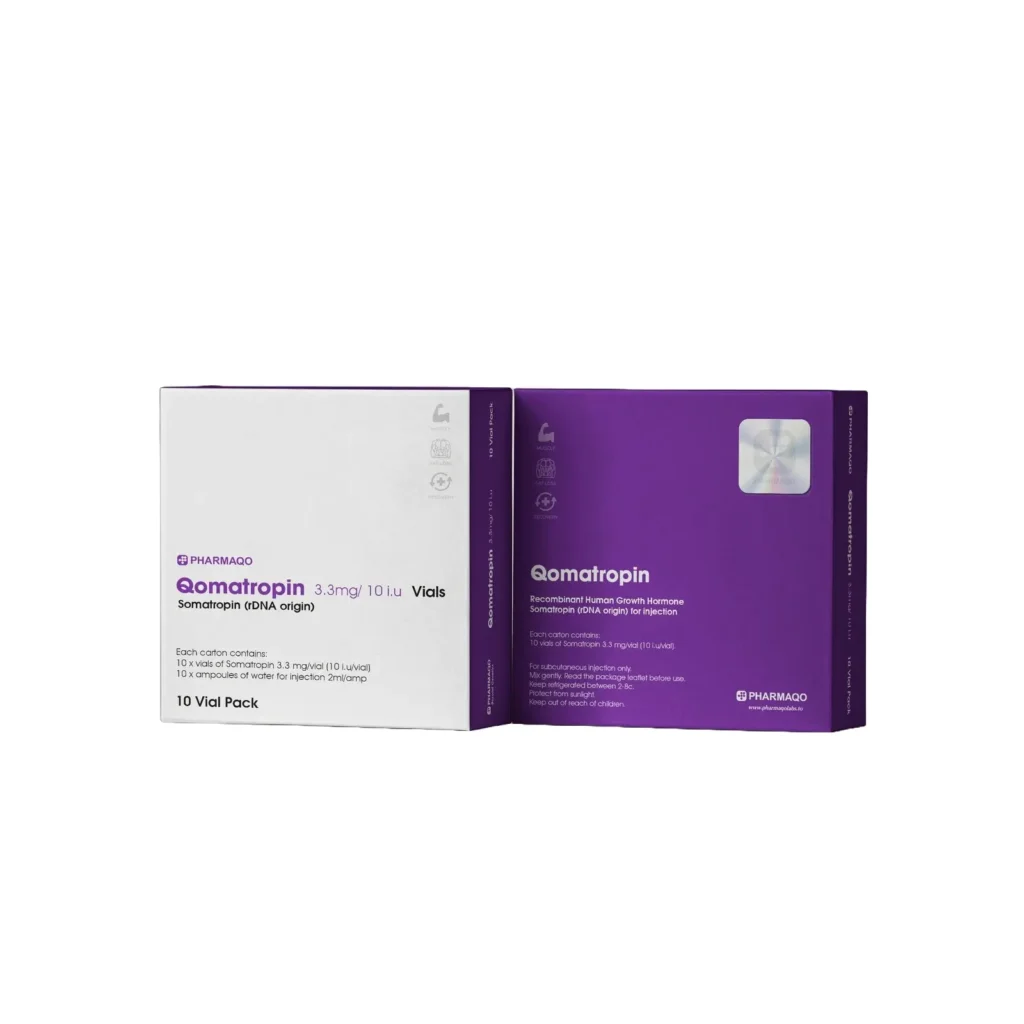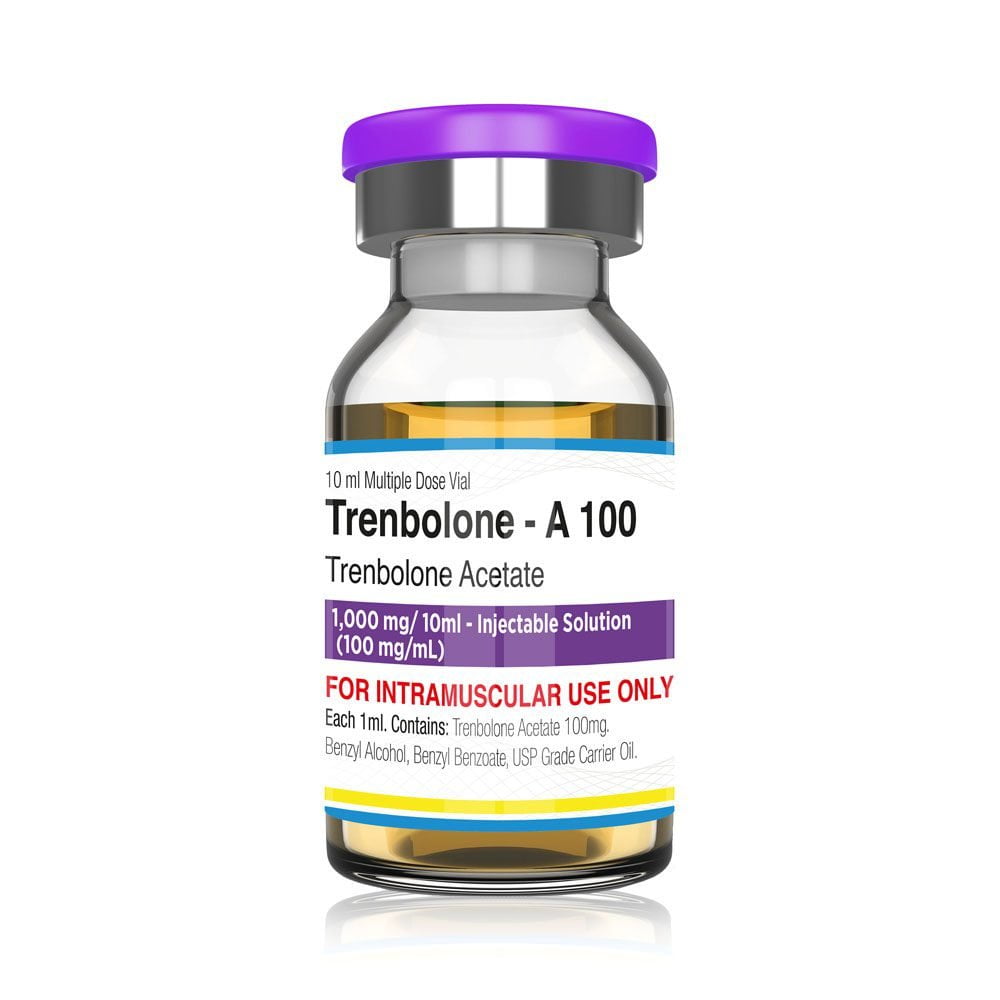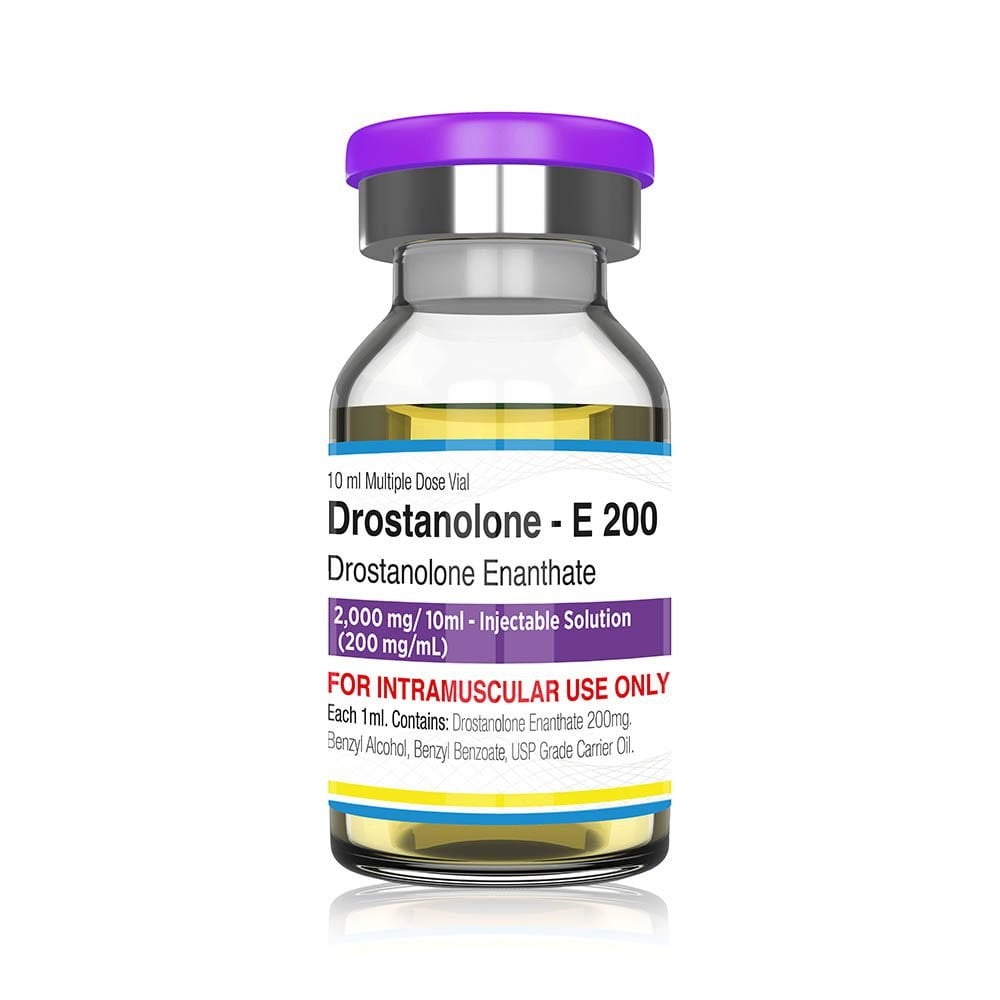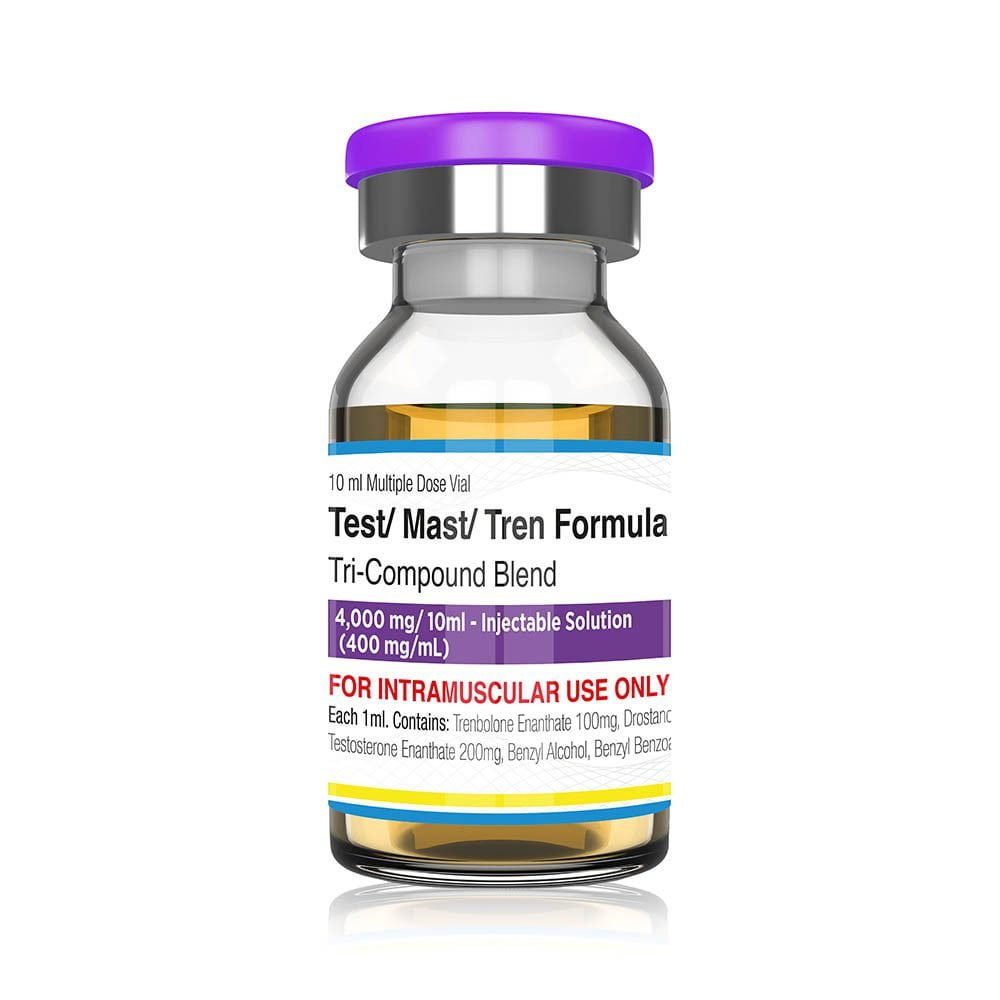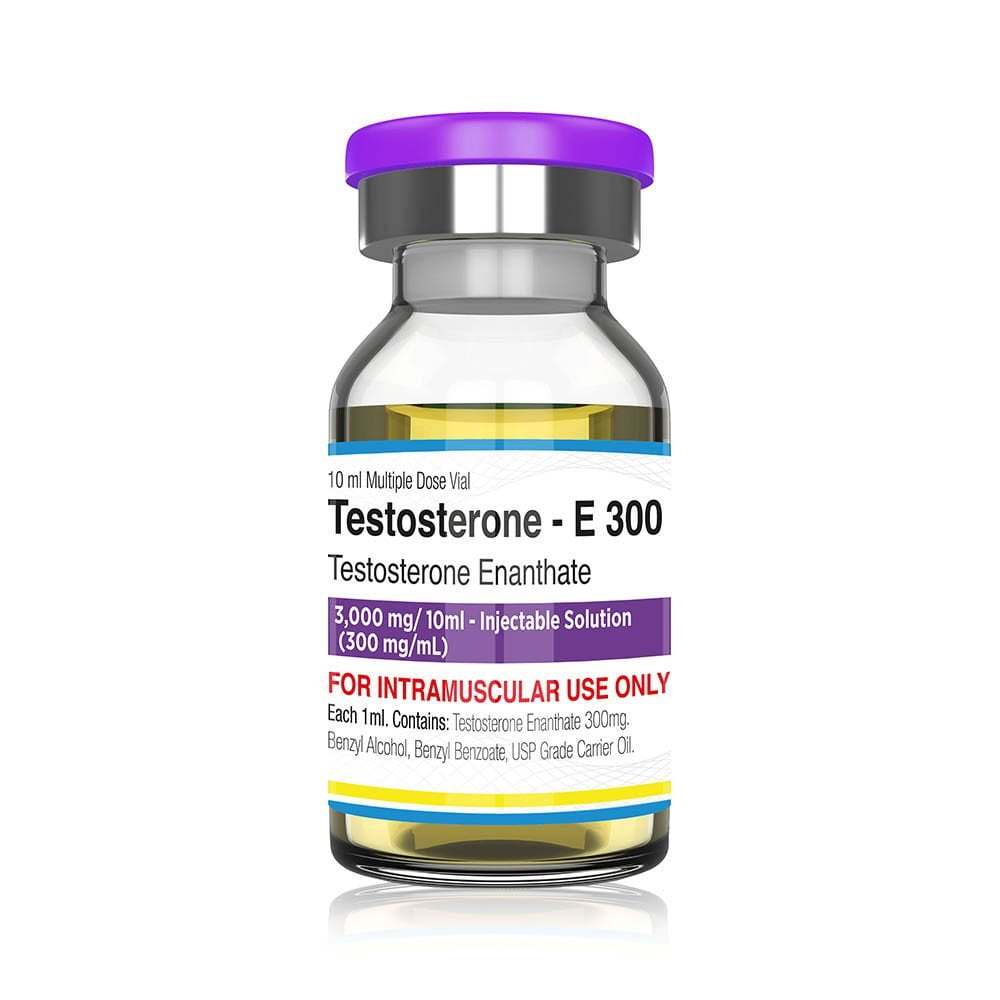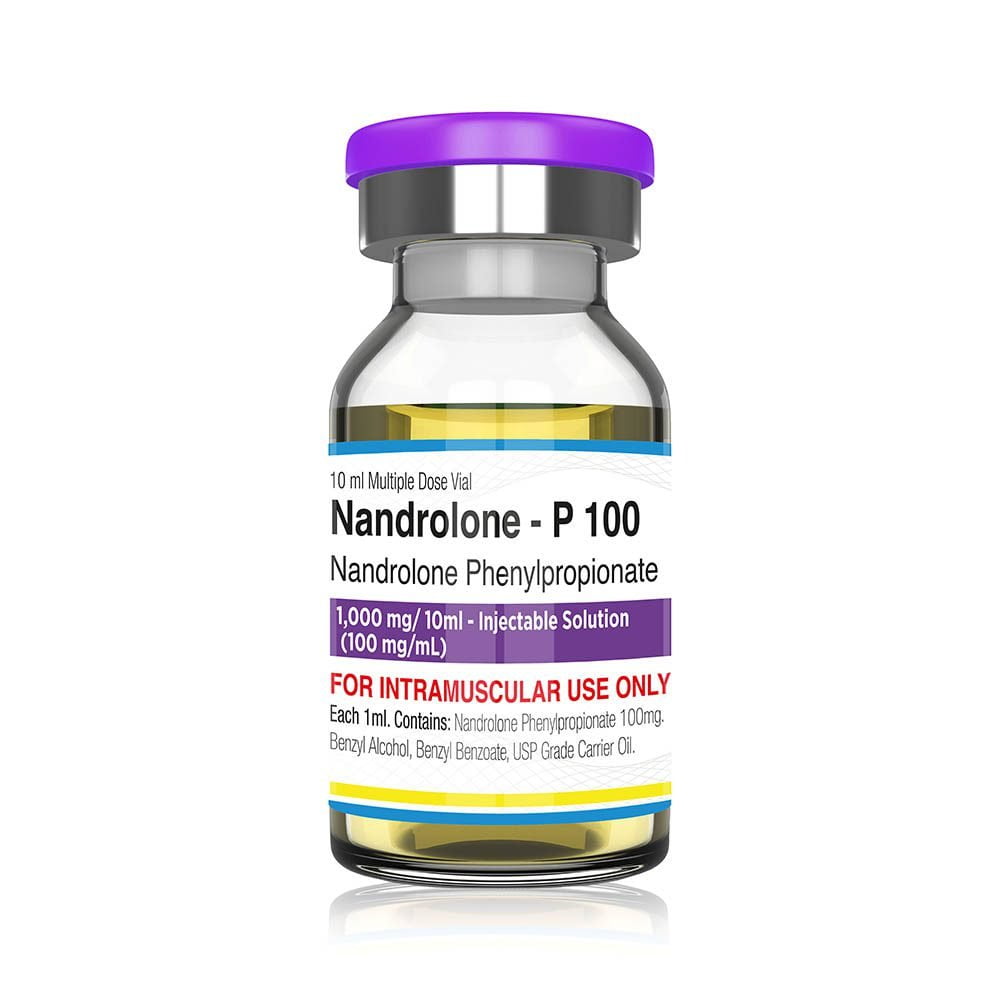Remember! Clenbuterol is a potent drug approved only for animal use. It is illegal and extremely dangerous to use Clenbuterol for weight loss, bodybuilding, or any other purposes in humans. Unapproved use can lead to serious heart, neurological, and other life-threatening side effects. Clenbuterol is banned by anti-doping agencies and its possession or use is against the law.
How Clenbuterol works?
Clenbuterol is a powerful bronchodilator medication that works by stimulating beta-2 receptors in the lungs and other body tissues. When abused for bodybuilding purposes, Clenbuterol causes an increase in heart rate, body temperature, and blood pressure. This "adrenaline-like" effect raises the body's metabolic rate, leading to greater calorie and fat burning.
For bodybuilders and athletes, higher metabolism from Clenbuterol can aid in weight loss and lean muscle development. It also has anabolic properties that may slightly increase muscle mass and strength. This is why Clenbuterol is favored in bodybuilding cycles despite its illegal and dangerous status.
On a molecular level, Clenbuterol works by binding to beta-2 receptors, which triggers a complex biochemical cascade. This increases levels of cAMP, a messenger molecule that facilitates metabolic processes like fat breakdown. Clenbuterol also has anti-catabolic effects, helping preserve muscle mass during cutting cycles.
Thermogenic Effects Clenbuterol's ability to increase body temperature and metabolic rate gives it potent thermogenic properties. This thermogenic effect causes the body to burn more calories, even at rest. For bodybuilders, this elevated thermogenesis can aid in getting leaner while protecting muscle mass.
Insulin Sensitivity Interestingly, Clenbuterol has been shown to improve insulin sensitivity through its effects on certain gene expressions. Better insulin sensitivity allows nutrients like protein to be shuttled more efficiently into muscle cells, potentially enhancing muscle anabolism and growth.
Breathing Effects As a bronchodilator, Clenbuterol can improve airflow to the lungs. Some bodybuilders claim this increased oxygen intake allows them to train harder and experience better muscular endurance during workouts.
Clenbuterol Benefits & Features
Weight Loss Effects One of the primary draws of Clenbuterol is its potent fat-burning and weight loss effects. By stimulating beta-2 receptors, Clenbuterol increases body temperature and metabolic rate, leading to greater calorie expenditure. Many bodybuilders report significant weight loss, especially from stubborn areas like the abdominals and love handles.
Clenbuterol's thermogenic properties mean the body burns more calories around the clock, even at rest. This makes Clenbuterol a powerful tool for getting shredded during cutting phases. The elevated metabolism also helps counter potential muscle loss that can occur in a caloric deficit.
Muscle Preserving Benefits Despite being in a hypo-caloric state for fat loss, Clenbuterol helps preserve hard-earned muscle mass due to its anti-catabolic effects. It seems to promote anabolism and protein synthesis while reducing muscle protein breakdown.
This partitioning effect, where fat is burned but muscle is retained, allows bodybuilders to get extremely lean and ripped while maintaining their size and strength. Some even report modest increases in lean mass when using Clenbuterol.
Strength, Energy and Performance Many bodybuilders note surges in strength, power output and muscular endurance when using Clenbuterol. This is likely due to the stimulant properties that increase energy, drive and intensity in the gym.
As a bronchodilator, Clenbuterol may also improve cardiovascular performance and oxygen delivery to working muscles. This "respiratory muscle endurance" can translate to higher training volumes.
The strength and performance boosting effects of Clenbuterol make it attractive for bodybuilders looking to maintain or even build muscle during cutting phases.
Appearance and Cosmetic Effects In terms of physical appearance, Clenbuterol gives bodybuilders a very hard, ripped and vascular look due to the loss of subcutaneous water and fat. Muscles appear more defined and striated.
Many report looking "dried out" and "diced" on Clenbuterol as if on stage for a bodybuilding competition. This cosmetic effect is highly sought after leading up to a contest. However, Clenbuterol remains illegal for this purpose and can be extremely dangerous if abused.
Clenbuterol Dosage
The typical dosage range for clenbuterol when used for bodybuilding and weight loss purposes is 60-120 micrograms (mcg) per day. This is much higher than the therapeutic dose of 20-30 mcg per day used to treat asthma.
Bodybuilders often start with a lower dose of around 40 mcg per day and gradually increase it by 20 mcg every few weeks until they reach their optimal dosage, which is usually between 80-120 mcg for men and 20-60 mcg for women
Clenbuterol Cycle
Beginner Bodybuilder Cycle:
- Men: 20-40 mcg per day
- Women: 10-20 mcg per day
Beginner bodybuilders should start with the lowest effective dose and gradually increase it over a few weeks. This allows the body to adjust to the stimulant effects of clenbuterol and minimizes the risk of side effects. Beginner cycles should be short, around 2-4 weeks, with a 2 week break before repeating.
| Week | Men's Dosage (mcg/day) | Women's Dosage (mcg/day) |
|---|---|---|
| 1 | 20 | 10 |
| 2 | 30 | 15 |
| 3 | 40 | 20 |
| 4 | 40 | 20 |
Semi-Advanced Bodybuilder Cycle:
- Men: 40-80 mcg per day
- Women: 20-40 mcg per day
Semi-advanced bodybuilders can increase the dosage range and cycle length. A common protocol is 2 weeks on, 2 weeks off. The dose can be increased by 20 mcg per week until the optimal effect is achieved, usually around 60-80 mcg for men and 40 mcg for women. Cycles should still be limited to 4-6 weeks.
| Week | Men's Dosage (mcg/day) | Women's Dosage (mcg/day) |
|---|---|---|
| 1 | 40 | 20 |
| 2 | 60 | 30 |
| 3 | 60 | 40 |
| 4 | 80 | 40 |
| 5-6 | OFF | OFF |
Professional Bodybuilder Cycle:
- Men: 80-120 mcg per day
- Women: 40-60 mcg per day
Professional bodybuilders may use the highest dosages, up to 120 mcg for men and 60 mcg for women. However, the benefits above 80-100 mcg are minimal while the risks increase significantly. Cycles should be limited to 4-6 weeks and followed by a 2-4 week break. Doses should be tapered up and down gradually.
| Week | Men's Dosage (mcg/day) | Women's Dosage (mcg/day) |
|---|---|---|
| 1 | 80 | 40 |
| 2 | 100 | 40 |
| 3 | 120 | 60 |
| 4 | 100 | 40 |
| 5-6 | OFF | OFF |
Clenbuterol Side Effects
Most Common Side Effects:
- Tremors/Shakes
- Clenbuterol frequently causes involuntary shaking and tremors in the muscles, especially in the hands and extremities.
- These can range from mild tremors to severe shakes that impair coordination.
- Insomnia/Sleep Disturbances
- Due to its stimulant properties, Clenbuterol often leads to difficulty falling and staying asleep.
- Disrupted sleep patterns are one of the most widely reported side effects.
- Increased Heart Rate/Palpitations
- Clenbuterol puts strain on the cardiovascular system, commonly causing an elevated heart rate.
- Many users experience heart palpitations, arrythmias, and a "racing" heartbeat.
- Muscle Cramps
- Dehydration and electrolyte imbalances from Clenbuterol's thermogenic effect can trigger painful muscle cramps.
- Leg cramps are especially common, often occurring at rest or during sleep.
- Excessive Sweating
- Increased body temperature from Clenbuterol results in profuse sweating and dehydration if fluids are not replenished.
Less Common Side Effects:
- Headaches/Migraines
- Anxiety/Jitters
- Nausea/Vomiting
- Hypertension (High Blood Pressure)
- Hair Loss/Thinning
- Menstrual Irregularities (in Women)
- Cardiac Hypertrophy (Enlarged Heart)
There are some important steps bodybuilders can take to try to minimize the risk of side effects when using Clenbuterol:
Stay Hydrated Drinking plenty of fluids is crucial to counter Clenbuterol's dehydrating effects and reduce side effects like muscle cramps, headaches, and overheating. Aim for at least 1 gallon of water per day.
Electrolyte Replenishment In addition to hydration, replacing electrolytes like sodium, potassium, and magnesium can help prevent cramping, tremors, and irregular heartbeats. Sports drinks, electrolyte tablets, or foods like bananas can help.
Start With a Low Dose Clenbuterol is potent, so starting with a low dose (20-40mcg) allows your body to adjust before increasing. This can minimize insomnia, jitters, and heart palpitations early on.
Cycle Off Periodically Using Clenbuterol continuously can lead to worse side effects over time. Following a cycle of 2 weeks on, 2 weeks off allows receptors to resensitize.
Consider a Taurine Supplement Some bodybuilders find taurine helpful for reducing Clenbuterol-induced cramps and tremors. Start with 3-5 grams daily.
Slow Taper at Cycle's End Gradually tapering Clenbuterol rather than stopping abruptly may prevent a harsh "rebound" effect.
Monitor Heart Health Due to potential cardiac stress, getting regular EKGs and blood pressure checks while on cycle is recommended.
Clenbuterol Stacks
Stacking Clenbuterol with anabolic steroids or other compounds is an advanced bodybuilding practice that should only be considered by experienced users! These stacks aim to burn fat rapidly while preserving or building muscle, but they significantly increase the risk of serious side effects and long-term health consequences. Clenbuterol alone is a powerful fat-burning drug that can be toxic when misused. Combining it with steroids like Winstrol, Testosterone, Trenbolone, Anadrol or Deca Durabolin amplifies the potential for liver damage, hormonal disorders, cardiovascular strain and other adverse reactions. Beginners or women's should never attempt these risky stacks - they are reserved strictly for advanced bodybuilders who understand proper cycling, on-cycle support supplementation, and post-cycle therapy protocols to help mitigate dangers. Even then, permanent side effects may still occur with prolonged abuse of these substances.
Fat Loss Stacks:
- Clenbuterol + Winstrol: Winstrol (Stanozolol) is an oral anabolic steroid often used during cutting cycles to preserve lean muscle mass while dieting. When stacked with Clenbuterol's potent fat-burning and thermogenic effects, this combo can dramatically accelerate fat loss while preventing muscle loss. However, both compounds put strain on the liver and cardiovascular system.
| Week | Men's Dosage (mcg/day) | Women's Dosage (mcg/day) |
|---|---|---|
| 1 | 40 Clen + 50 mg Winstrol | 20 Clen + 10 mg Winstrol |
| 2 | 60 Clen + 50 mg Winstrol | 40 Clen + 10 mg Winstrol |
| 3-4 | 80 Clen + 50 mg Winstrol | 60 Clen + 10 mg Winstrol |
| 5-6 | 100 Clen + 50 mg Winstrol | 80 Clen + 10 mg Winstrol |
- Clenbuterol + Anavar: Anavar (Oxandrolone) is another mild yet effective oral cutting steroid frequently combined with Clenbuterol. Like Winstrol, Anavar helps retain strength and muscle when in a caloric deficit, complementing Clen's ability to burn fat rapidly. This stack is considered slightly milder on the body than Winny/Clen.
| Week | Men's Dosage (mcg/day) | Women's Dosage (mcg/day) |
|---|---|---|
| 1 | 40 Clen + 40 mg Anavar | 20 Clen + 10 mg Anavar |
| 2 | 60 Clen + 40 mg Anavar | 40 Clen + 10 mg Anavar |
| 3-4 | 80 Clen + 40 mg Anavar | 60 Clen + 10 mg Anavar |
| 5-6 | 100 Clen + 40 mg Anavar | 80 Clen + 10 mg Anavar |
Lean Muscle Stacks:
- Clenbuterol + Testosterone: Stacking Clenbuterol with an injectable testosterone compound like Testosterone Enanthate or Cypionate enables users to burn fat aggressively with Clen while the exogenous testosterone helps build and maintain lean muscle mass. However, testosterone is suppressed during Clen use so supplementation is required.
| Week | Men's Dosage (mcg/day) |
|---|---|
| 1 | 40 Clen + 250 mg Test |
| 2 | 60 Clen + 250 mg Test |
| 3-4 | 80 Clen + 250 mg Test |
| 5-6 | 100 Clen + 250 mg Test |
- Clenbuterol + Trenbolone: Trenbolone is one of the most potent anabolic steroids, known for its ability to promote drastic increases in fat loss, vascularity, and dense, hard muscle growth. When combined with Clenbuterol's thermogenic benefits, this stack delivers an extremely powerful cutting and recomposition effect but with high toxicity risks.
| Week | Men's Dosage (mcg/day) |
|---|---|
| 1 | 40 Clen + 75 mcg Tren |
| 2 | 60 Clen + 75 mcg Tren |
| 3-4 | 80 Clen + 75 mcg Tren |
| 5-6 | 100 Clen + 75 mcg Tren |
Strength/Performance Stacks:
- Clenbuterol + Anadrol: Anadrol (Oxymetholone) is an oral steroid capable of dramatically increasing red blood cell production, strength, and aggression. Stacked with Clenbuterol's stimulant qualities, this combo is used by some for self-reported insane power and endurance boosts in the gym. However, Anadrol is extremely liver-toxic.
| Week | Men's Dosage (mcg/day) |
|---|---|
| 1 | 40 Clen + 50 mg Anadrol |
| 2 | 60 Clen + 50 mg Anadrol |
| 3-4 | 80 Clen + 50 mg Anadrol |
| 5-6 | 100 Clen + 50 mg Anadrol |
- Clenbuterol + Deca Durabolin: Deca (Nandrolone Decanoate) is a Injectable anabolic noted for its joint relief and endurance enhancing properties. When combined with Clenbuterol, users report being able to train harder and longer while simultaneously reaping Clen's fat-burning effects.
| Week | Men's Dosage (mcg/day) |
|---|---|
| 1 | 40 Clen + 300 mg Deca |
| 2 | 60 Clen + 300 mg Deca |
| 3-4 | 80 Clen + 300 mg Deca |
| 5-6 | 100 Clen + 300 mg Deca |
Clenbuterol PCT
Clenbuterol typically does not require a post-cycle therapy (PCT) since it is not an anabolic steroid and does not suppress natural testosterone production.
Since clenbuterol does not cause testosterone suppression, no PCT compounds like Nolvadex or Clomid are needed after a clenbuterol cycle
Clenbuterol Legal-Status
Legal Status in the USA:
- Clenbuterol is not approved for human use by the U.S. Food and Drug Administration (FDA). It is only approved for veterinary use in horses
- In 1998, the FDA approved the clenbuterol-based Ventipulmin Syrup for the treatment of airway obstruction in horses. However, this product is not intended for human use or use in food-producing animals
- Clenbuterol is currently not controlled under the U.S. Controlled Substances Act (CSA). However, it is listed as a banned substance by the World Anti-Doping Agency and the International Olympic Committee
- Using clenbuterol for bodybuilding or weight loss is considered off-label and illegal in the U.S. since it is not FDA-approved for human use
Legal Status in Canada:
- Clenbuterol is not approved for human use in Canada. It is only approved for veterinary use.
- In Canada, the use of clenbuterol in livestock for food production has been banned since 1991
- Canada has revised its import regulations to include stricter food safety requirements regarding clenbuterol residues in meat
Other Legal Restrictions:
- The European Union, China, South Africa and many other countries have banned the use of clenbuterol in livestock for food production due to food safety concerns
- Clenbuterol is illegal to use in food-producing animals in the U.S. and Europe. Violators face penalties
- Clenbuterol has been identified as an adulterant in street drugs like heroin. Possession of clenbuterol-tainted drugs can result in charges
Clenbuterol in Sport
The World Anti-Doping Agency (WADA) has established new rules effective June 2019 to ensure that clenbuterol meat contamination cases are resolved fairly for athletes. Low levels of clenbuterol below 5 ng/mL in urine can now be reported as an atypical finding and investigated as a potential meat contamination case
- In 2011, five-time Tour de France winner Alberto Contador tested positive for clenbuterol during the 2010 Tour de France. He was initially banned for one year but later cleared by the Court of Arbitration for Sport, which ruled that the positive test was likely due to eating contaminated meat Read more
- In 2018, boxing champions Canelo Alvarez and Francisco Vargas both tested positive for clenbuterol in the lead-up to their fights. They claimed the positive tests were caused by eating contaminated meat in Mexico, where clenbuterol is commonly used in livestock Read more
- In 2019, CrossFit athlete Elly Kabboord tested positive for clenbuterol at the Reykjavik CrossFit Championship in Iceland. She claimed the positive test was consistent with meat or supplement contamination and was still under investigation Read more
- In 2020, Chinese swimmer Sun Yang was banned for 4 years and 3 months after testing positive for clenbuterol. He claimed the positive test was due to eating contaminated pork Read more
- Several other athletes across sports like cycling, boxing, MMA, and track and field have tested positive for clenbuterol over the past decade, with many claiming the positive tests were caused by eating contaminated meat, especially in countries like Mexico and China where clenbuterol is used in livestock
- Multiple Chinese athletes have tested positive for clenbuterol in recent years, including 23 top Chinese swimmers before the 2021 Olympics. The Chinese government has maintained a virtual silence on these cases, restricting media coverage and online discussions within China Read more
Clenbuterol Tips & Guide
Timing is Key When it comes to taking clenbuterol, timing matters. Many experts recommend taking your daily dose first thing in the morning on an empty stomach. This allows the clenbuterol to be absorbed optimally and take full effect. Avoid taking it too late in the day as it can disrupt sleep due to its stimulant properties.
Stay Hydrated! One side effect of clenbuterol is increased body temperature. To combat this, be sure to drink plenty of water throughout the day, especially around your workouts. Proper hydration is critical for performance as well as managing potential side effects.
Supplement Wisely To enhance the fat-burning power of clenbuterol, consider adding thermogenic supplements like green tea extract or l-carnitine. These can help give an extra metabolic boost. Taurine is also recommended by many to help mitigate cramping sometimes caused by clenbuterol.
Exercise for Best Results For maximum benefits, clenbuterol should be combined with a proper diet and exercise regimen focused on fat loss and lean muscle preservation. Many find that HIIT/cardio on clenbuterol days along with weight training works very effectively.
Cycling is Critical Like with many compounds, it's vital to cycle clenbuterol properly rather than taking it continuously. Most aim for 2 weeks on, 2 weeks off to avoid building too much tolerance or taxing the body excessively. Listen to your body and adjust cycles as needed
Clenbuterol FAQ
Clenbuterol is not approved for human use by the U.S. Food and Drug Administration (FDA). It is only approved for veterinary use in horses to treat airway obstruction. Using clenbuterol for bodybuilding or weight loss is considered off-label and illegal in the U.S. due to significant safety concerns and lack of proven efficacy in humans.
Clenbuterol can increase metabolism and fat burning by raising body temperature through thermogenesis. Animal studies have shown it can promote fat loss, especially when combined with exercise and calorie restriction. However, the evidence in humans is more limited. The doses needed for fat loss are much higher than therapeutic doses and come with serious risks.
There is no evidence that clenbuterol directly affects testosterone levels. Clenbuterol is not a steroid and does not suppress natural testosterone production like anabolic steroids can. However, some athletes stack clenbuterol with testosterone or other anabolic steroids to enhance its effects, which can lead to hormonal imbalances.
Clenbuterol should not be combined with other stimulants, diuretics, or medications that affect the cardiovascular system, as this can increase the risk of adverse effects like heart palpitations, high blood pressure, and electrolyte imbalances. It’s also important not to take clenbuterol with certain asthma medications, as this can lead to overdose.
Yes, clenbuterol can have serious cardiovascular side effects, especially at the high doses used for bodybuilding. It can cause tachycardia, heart palpitations, chest pain, and even cardiac arrest in severe cases. Clenbuterol toxicity can lead to refractory hypotension and life-threatening dysrhythmias.
Clenbuterol has a relatively long half-life of 25-39 hours, meaning it stays active in the body for several days after taking it. The stimulant effects are usually felt within a few hours of the first dose, but it can take several days to reach peak levels in the body. The effects can persist for 1-8 days after stopping clenbuterol.
There is limited data on the direct hepatotoxicity of clenbuterol in humans. However, it can cause rhabdomyolysis, which is the breakdown of skeletal muscle that can lead to kidney damage. Clenbuterol toxicity can also cause metabolic acidosis, which can stress the liver. More research is needed on its long-term effects on liver function.
Yes, clenbuterol can significantly disrupt sleep due to its stimulant properties. Many users report difficulty falling and staying asleep while taking clenbuterol. The insomnia and sleep disturbances are some of the most commonly reported side effects of clenbuterol abuse.
Yes, clenbuterol can act as an appetite suppressant, which is part of its appeal for weight loss. The increased metabolism and fat-burning effects can make you feel less hungry. However, the appetite suppression is not a universal effect, and some users still struggle with cravings while taking clenbuterol.
There are a few possible reasons why someone may gain weight while taking clenbuterol:
- Water retention – Clenbuterol can cause temporary water retention that shows up on the scale as weight gain.
- Increased appetite – While clenbuterol can suppress appetite in some, others experience increased hunger that leads to overeating and weight gain.
- Decreased metabolism over time – Prolonged clenbuterol use can actually decrease metabolism as the body adapts, leading to slower fat loss or weight gain
Yes, clenbuterol can significantly impact mood and mental state. The stimulant effects can cause anxiety, agitation, and jitteriness. Some users also report increased irritability, mood swings, and even depression after stopping clenbuterol. The mental side effects are likely due to the drug’s impact on neurotransmitters like dopamine and serotonin.
Yes, clenbuterol is considered quite dangerous, especially at the high doses used for bodybuilding and weight loss. The side effects can be severe and include heart palpitations, tremors, high blood pressure, electrolyte imbalances, and even cardiac arrest. Clenbuterol is not approved for human use in the U.S. and is banned by anti-doping agencies due to the significant health risks.
No, taking clenbuterol before bed is not recommended due to its stimulant effects and potential to disrupt sleep. Clenbuterol is best taken in the morning or early afternoon to allow time for the effects to wear off before bedtime. Taking it too close to bedtime can worsen insomnia and sleep disturbances.
There is limited research on the direct effects of clenbuterol on memory in humans. However, some animal studies have suggested clenbuterol may have cognitive-enhancing effects by improving memory and learning. In humans, the stimulant effects of clenbuterol could potentially improve focus and concentration in the short-term. But the long-term effects on memory are unknown
Clenbuterol Reviews
Yes, I have tried clenbuterol. It definitely gave me a boost of energy and made me more alert during my workouts. I felt like I could push myself harder for longer periods of time. I also noticed an increase in muscle definition and size, which was great! The fat burning effects were also noticeable, as I had more energy to burn off calories while exercising. Overall, clenbuterol was a great experience for me. It helped me get the most out of my workouts and achieve better results in the gym. - Quora.com
Don't let everyone scare you, I was at 32% BF when I started taking clen. Didn't have any side effects and helped me lose 30 pounds. It's a great drug. I should also say I was also on TRT, Rad 140, and cardarine. Ate high protein diet and was at the gym 6 days a week. I should also say I added in the clen for the last 6 weeks of my cycle and didn't notice much for fat loss before I started it. Try it out won't hurt to try. - Quora.com
So for the ladies lookin into takin’ clen, it's super important to start with a low dose, especially cuz a woman's body tends to be more sensitive to it. Startin’ with like 20 mcg a day and then incrementally increasing it every few days by another 20 mcg can be a good way to go… maxin out at bout 120 mcg. Jus’ remember that clen can be pretty potent so keep an eye on how ur body's reacting. - Quora.com
Clenbuterol Where to buy
As an effective fat-burning aid, Clenbuterol is in high demand among bodybuilders and athletes looking to get lean and ripped. However, it's important to understand that Clenbuterol prices can vary significantly based on factors like brand, quantity, and location.
In the United States and Canada, Clenbuterol for human use is only available through a valid prescription due to its classification as a medication. Typically, pharmaceutical-grade Clen tablets or syrup will cost $1-$3 per tab/dose when obtained this way. Some opt for veterinary-grade Clenbuterol intended for animal use, which can be $40-$80 for a 30mL vial, though quality can be inconsistent.
On the black market, such as through certain websites or other underground sources, anabolic steroid suppliers may sell human Clenbuterol tablets or gels at $50-$100 for 100 tabs/units. However, purchasing Clen this way internationally has major legal risks of confiscation or penalties for importation.
For those able to access it legally, the most reliable and quality-assured way is to purchase pharmaceutical Clenbuterol only after receiving a valid prescription from a doctor. They can provide proper guidance on dosage and reputable suppliers.
No matter where you obtain Clenbuterol, be extremely cautious of counterfeit or underdosed products. Only trusted, verified sources should be used to ensure you get legitimate, properly dosed Clenbuterol for your safety. Your health should be the top priority when dealing with any anabolic substance.
High Quality Clenbuterol can be also bought in our USA & Canada store.
Human Growth Hormone
Qomatropin HGH 100iu | Pharmaqo Labs
Tri Trenbolone Blend
Multi-Ester Tren 200 | Pharmaqo Labs
Drostanolone Enanthate / Masteron Enanthate
Drostanolone-E 200 | Pharmaqo Labs
Superbol / Superbolan
Test/Mast/Tren 400 | Pharmaqo Labs
Drostanolone Propionate / Masteron Propionate
Drostanolone-P 100 | Pharmaqo Labs
Testosterone Enanthate / Testoviron
Testosterone-E 300 | Pharmaqo Labs
Trenbolone Enanthate
Trenbolone-E 200 | Pharmaqo Labs
Nandrolone Phenylpropionate / NPP
Nandrolone-P 100 | Pharmaqo Labs
Clenbuterol Alternatives
Here are some alternatives and similar supplements to clenbuterol for fat burning and weight loss:
Ephedrine A powerful stimulant that can significantly increase metabolism, calorie burn, and suppress appetite. Ephedrine was previously found in many over-the-counter fat burners until being banned by the FDA in 2004 due to safety concerns like increased heart rate, blood pressure, and risk of heart attack or stroke, especially when combined with caffeine. It is now more tightly controlled but still used for weight loss purposes in some circles.
Caffeine One of the most widely consumed stimulants, caffeine can provide a moderate boost to metabolic rate, calorie burn, and fat oxidation. It's a common ingredient in pre-workout supplements, fat burners, and weight loss pills due to its ability to increase energy, focus, and even temporarily suppress appetite. Caffeine is generally recognized as safe in reasonable dosages.
Green Tea Extract Made from the leaves of the Camellia sinensis plant, green tea is a rich source of polyphenol antioxidants like EGCG that may increase fat burning and raise metabolic rate. The modest caffeine content can also aid in these effects. Many use a concentrated green tea extract supplement as a gentle thermogenic aid.
Yohimbine An alkaloid molecule extracted from the African yohimbe tree bark. Yohimbine is believed to work by blocking receptors for the fat-storage hormone alpha-2 adrenergic, allowing the body to more readily burn stubborn fat stores. It's sometimes included in fat burners aimed at "stubborn" fat areas like the lower abdomen.
Synephrine Found in foods and extracts from bitter orange (Citrus aurantium), synephrine is structurally similar to ephedrine and works as a mild stimulant and thermogenic. As a result, it's been used as a gentler, legal alternative to ephedrine in many over-the-counter fat burners and weight loss pills.
ECA Stack This combined ephedrine, caffeine, and aspirin (or other anti-inflammatory) to potentially boost fat loss further than any one ingredient alone. However, this "stack" brings significantly increased risk of dangerous side effects like spiking blood pressure, cardiovascular stress, and stroke - even more so than ephedrine by itself.
Salbutamol/Albuterol Though primarily a bronchodilator medication for asthma, salbutamol has also found off-label use as a weight loss aid due to its ability to moderately raise metabolic rate. However, it is not as potent or effective for fat loss as clenbuterol from most reports. Legal risks and side effects exist with improper use.
Cytomel (T3/Citomed) A synthetic form of the thyroid hormone T3 that can increase metabolic rate and calorie burn when taken at high doses. While prescribed for hypothyroidism, it's sometimes misused for weight loss purposes. Can cause muscle wasting, cardiovascular issues, and other side effects if abused long-term.
Semaglutide (Ozempic/Wegovy) An injectable medication that mimics a hormone called GLP-1 to increase feelings of fullness and reduce caloric intake. Approved under the name Wegovy for chronic weight management, leading to significant weight loss in clinical trials when combined with diet and exercise. Potential side effects include gastrointestinal issues and increased risk of thyroid tumors with long-term use.
Human Growth Hormone












